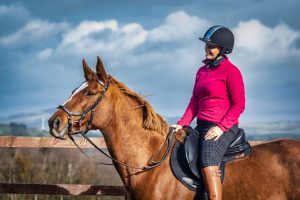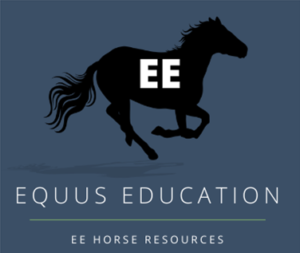Equestrian NLP Coach Practitioner Tracey Cole answers some profile questions on Equus Education below. She outlines how she uses coaching in mental mindset to help horse riders.
How much of your day/week is related to horses?
Almost all of my time! I’m either coaching or training riders, working on equestrian blogs and social media posts or going to see my own horses!
What is it exactly that you do?
I coach and train riders in mindset. A rider may have a obstacle, block or fear that’s stopping them enjoying their riding and for some professional riders it can be impacting on performance. I also train riders and instructors in accredited mindset and mental strength courses. Specifically in NLP, NLP Coaching, Hypnosis and Time Line Therapy®
In this field of work, is it possible to be a full-time professional and earning a liveable income?
Absolutely! I work full-time as an equestrian mindset coach and trainer. There are so many riders with mindset challenges – from performance anxiety in competitions, clinics and lessons to those who have limiting beliefs and emotional issues that lie underneath their riding problems. There are 1.8 million riders in the UK alone and many suffer with nerves and anxieties.

Confident riders also benefit, because you can feel confident in your physical riding of a horse, yet have doubts about your ability to do well, you may be conflicted about next steps, you could be carrying around old emotional baggage, fears, anger, hurt, shame, that affect your concentration and focus.
Profile On: Tracey Cole, Equestrian NLP Coach
What are the general steps taken to be employed in such a role?
First of all seek out an NLP trainer. Preferably one with equestrian or sporting knowledge, so that they can give you specialist tips on how to support your clients. Gain a certification as an NLP Practitioner, this allows you to coach clients and be insured to do so. You may want to add extra strings to your bow: Practitioner qualifications in Hypnosis, Time Line Therapy® for emotional issues and NLP Coaching. This gives you a comprehensive toolkit to help those with anything from trauma to mild riding nerves to stress, anxiety, panic attacks, phobias and a few more!
From there, you can study further to become a Master Practitioner in the field already listed. This really helps you to take on even the most ingrained and stubborn client issues. You learn to bring about changes in people’s thinking using conversation, as well as with defined techniques.
If you’d like to train people to become Practitioners and Master Practitioners, then you have to complete NLP Trainer’s Training. This is very different to the other trainings. You have to pass a written exam (mine was 7 hours non-stop), show that you can perform any given technique, without any scripts or prompts and be able to teach others. Then you give 2 presentations, which must contain a set list of structures and training strategies. It’s quite tough and rightly so! When you can train NLP, you can train further to become a trainer of Hypnosis, Coaching and Time Line Therapy®
Favourite horse memory?
I re-started my riding again aged about 30 in Kansas. After my evening lesson, I could take the horse for a quiet walk around the grounds. With the heat of the day disappearing, the sounds of the crickets, cicadas and coyotes and the sun setting in the most stunning purples and oranges, that cool-down was always very special to me. I’d think, “How did a girl from Warrington get to be doing this?!”
Future goals?
To continue with my online, face to face and Zoom trainings and make mental strength training completely accessible for all riders. I’d love for riders to turn to an NLP Practitioner as soon as they needed to, so that it’s as commonplace as getting professionals out to our horses!
Best thing about your sport/profession?
The horses are inspirational in themselves. They are always communicating with us, they do tell us what they think! By getting out of our own heads for a moment, we can feel so fortunate to be around these beautiful animals.

Leave a Reply